UNSC extends cross-border aid delivery into Syria, halves crossings, time
The United Nations Security Council has extended a six-year-long system for a cross-border delivery of humanitarian aid to people in Syria, halving the crossing points and the length of time.
Back in July 2014, the UN Security Council adopted Resolution 2165, allowing humanitarian convoys, headed for war-torn Syria, to cross the four border-crossings of Bab al-Salam and Bab al-Hawa in Turkey, al-Ya’rubiyah in Iraq, and al-Ramtha in Jordan.
The authorization has been extended every year since then, and its current mandate was due to expire at midnight on Friday if the UNSC did not reach a last minute deal.
A few hours before its expiration, the 15-member council allowed cross-border aid deliveries to continue from two places in Turkey, but it dropped crossing points from Iraq and Jordan, and reduced it to a six-month period, instead of its usual one-year period, to avoid a Russian veto.
In December, the UN Security Council raised the issue of the renewal of the delivery system with Belgium, Kuwait, and Germany, drafting a resolution that dropped the Jordan crossing in a bid to compromise with Russia, which wanted to approve only two Turkish crossings for six months and had proposed its own draft text.
Russia and China vetoed the rival resolution, arguing that the scheme, adopted five years ago without the Syrian government’s consent, had become irrelevant by 2019.
Vassily Nebenzia, the Russian ambassador to the UN, said at the time that delivering aid from Turkey and even Iraq had been justifiable, although legally questionable, back in 2014 because many Syrian civilians lived in hard-to-reach areas controlled by terrorists back then.
However, Damascus in 2019 was strong enough to distribute humanitarian aid on its own, hence bypassing government checkpoints would be a sign of disrespect for the country’s sovereignty, he said, stressing, “We live in 2019, not in 2014.”
Rounds of talks since then have failed to end the deadlock.
Prior to vote on Friday, Britain’s UN Ambassador Karen Pierce reiterated what the West had said earlier, claiming that designating only two crossing points for half a year was “an inadequate response to the situation on the ground.”
“There are some 1.8 million people at risk in the northeast if we don’t find a way to help them. This is winter. One can imagine how dire the situation becomes,” Pierce told reporters.
However, Nebenzia rejected the British UN envoy’s concerns, saying that the situation had changed dramatically and that UNSC’s action should reflect the change.
“All these cries about imminent catastrophe, disaster, which northeast faces if we close one cross-border point, are totally irrelevant because humanitarian assistance to that region is coming from within Syria,” the Russian envoy told reporters ahead of the vote.
On Tuesday, Jens Laerke, spokesman for the Office for the Coordination of Humanitarian Affairs (OCHA), had called on world powers to renew the authorization, stressing that was no alternative to the current method.
The aid is particularly important for Idlib Province, large parts of which are still under the control of foreign-backed militants and which is the scene of clashes between militants and advancing Syrian government troops.
According to the UN figures, at least 300,000 people have been internally-displaced by the fighting in the Idlib region since mid-December, raising the total number of displacements in the region to 700,000 over the last eight months.
VIDEO | Al-Zahra: Once vibrant Gaza City reduced to ruins in Israeli bombing and selling
Iraqi volunteers enlist to support Iran against potential US attack
ICE secretly deports Palestinians in Trump ally's private jet to Israel: Report
VIDEO | Press TV's news headlines
IRGC captures nearly a dozen PJAK terrorists in western Iran
Iran, Qatar say keeping regional peace is shared responsibility
AFC Futsal Asian Cup 2026: Iran lifts championship trophy for 14th time
VIDEO | Trump’s Iran strategy: All bluster, no exit


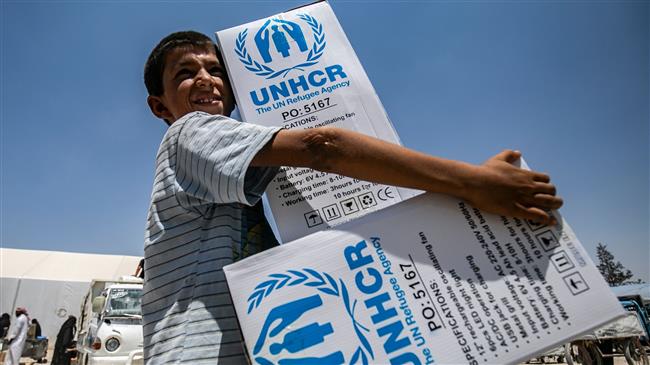

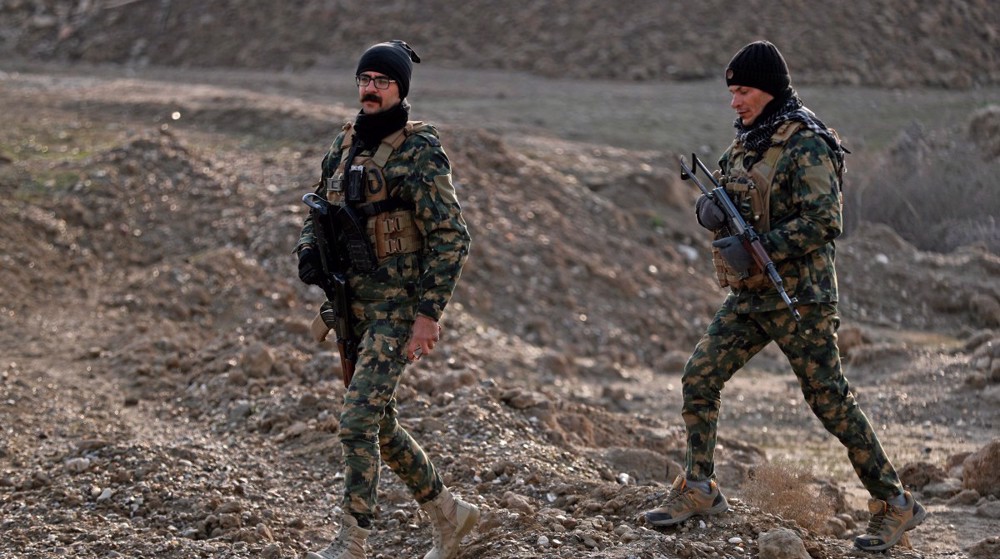
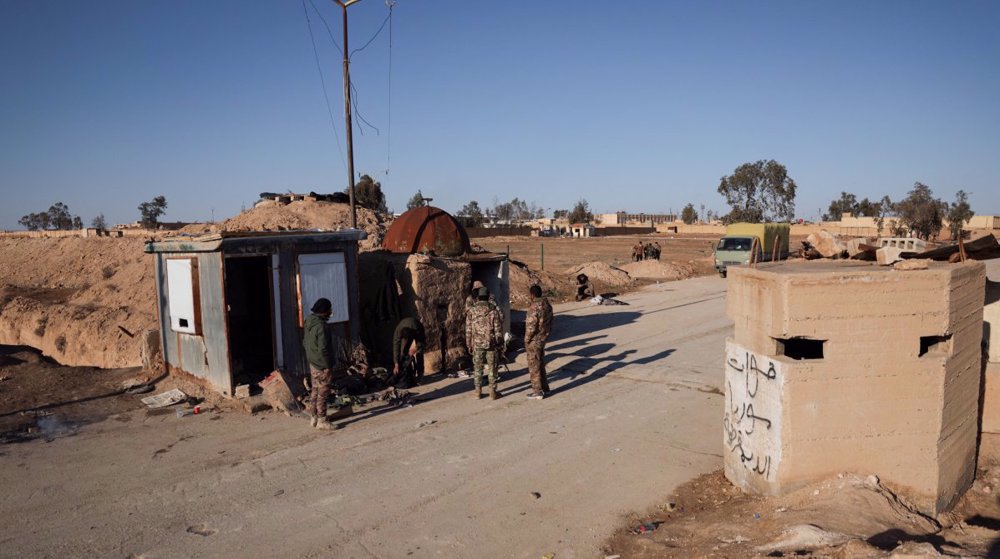
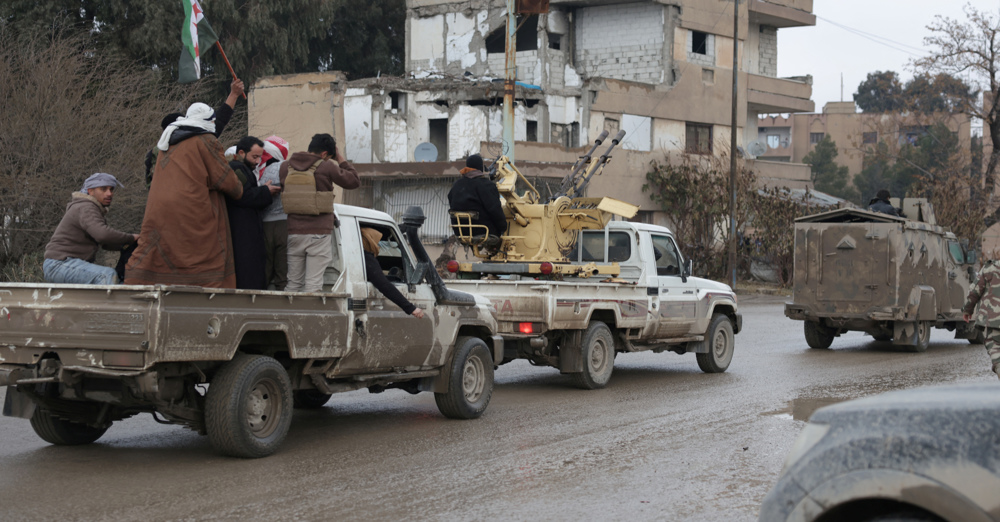



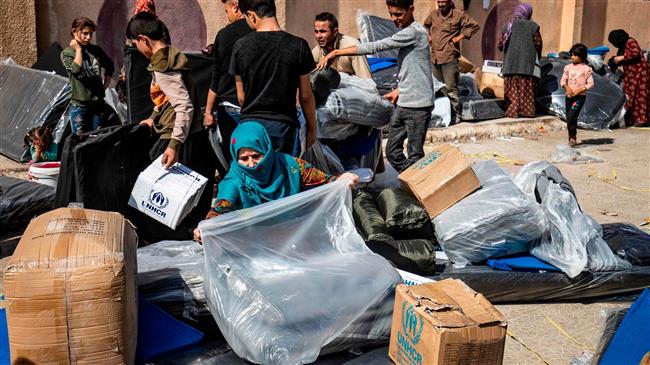
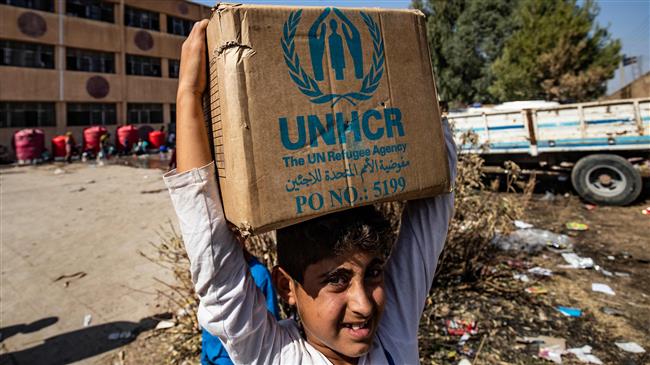
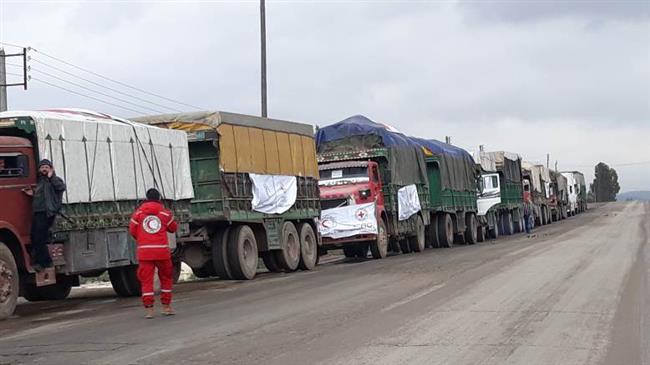
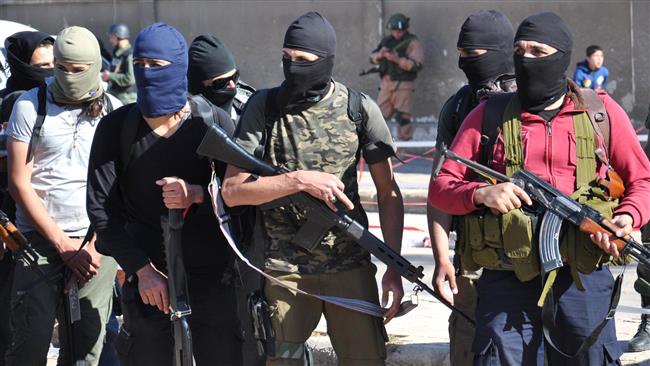

 This makes it easy to access the Press TV website
This makes it easy to access the Press TV website